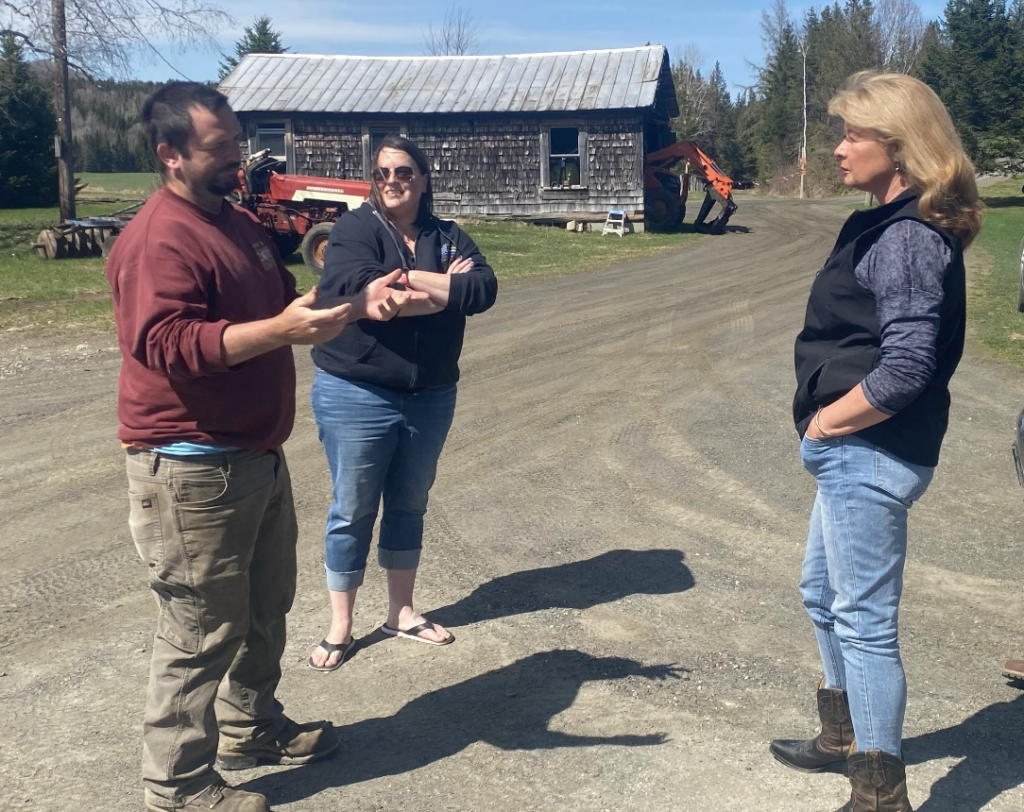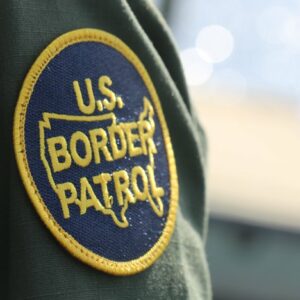Illegal crossings at America’s southern border set yet another record in May with Customs and Border Protection (CBP) announcing 239,416 migrant encounters. That was a jump of 33 percent over a year ago, and higher than the previous record (235,478) set just one month earlier.
So, why is New Hampshire Gov. Chris Sununu complaining about security at the northern border?
The three-term Republican recently appeared on Fox News to warn that the crisis in the Southwest is diverting agents away from the U.S.-Canada border, leaving an easy entryway for drug smugglers — or worse.
“They’re coming over private lands and they’re not just coming down the road anymore,” Sununu said. “They have their little smuggling and signal systems that a lot of our private citizens have alerted Border Patrol agents about. We’re trying to put more state police up at the northern border.”
New Hampshire has been one of the states hardest hit by the opioid epidemic of the past decade. In 2015 it had the second-highest rate of opioid deaths in the nation (West Virginia held the top spot), though the rate has declined in recent years.
And yet, according to Andrew Arthur, a resident fellow with the Center for Immigration Studies, the rate of drug seizures at the northern border has declined.
For example, in 2021, Customs and Border Protection seized 79,600 pounds of marijuana coming across the Northern border—approximately 10 times the amount seized in 2019 which experienced a historical surge on the Southwest border as well. Department of Homeland Secretary Kirstjen Nielsen declared a border emergency on March 29, 2019.
With only two months left in fiscal year 2022, 18,300 pounds of marijuana have been seized.
“In 2021, according to the CDC, 107,000 people died from overdoses,” Arthur said. “A record number and most of that’s attributable to fentanyl. There’s no reason drug seizures would drop if drug usage is up—other than that nobody is there [at the border].”
That is not news to Keith Robinson of Pittsburg, N.H., a border town with fewer than 900 people. The only thing that separates Robinson’s 225-acre farm from Canada is a creek. He was one of the private citizens Gov. Sununu was talking about.
“We live off a seven-mile, one-way dirt road,” Robinson said. “Two years ago, pretty much anytime I would go down the road I would see a border agent parked or driving up and down our road. Now in the last year, we’re lucky to see an agent once a week.”
In the nearby town of Colebrook, police chief Paul Rella says his department has responded to an unprecedented number of overdoses where Narcan was administered. They average between five and 20 overdoses a month, and there have been six deaths in the past year, a huge number for a town of just 2,000 people.
“I can’t say the fentanyl is coming from the Northern border,” Rella said. “I know from speaking with the Drug Enforcement Agency, they indicated that the fentanyl is coming through the seriously porous Southern border that is a disaster right now.”
Still, the activity on New Hampshire’s border is a problem and it has locals like Robinson worried. He has noticed a walking path has recently developed causing concerns for his teenage daughter’s safety. “We’re right next to the border,” Robinson said. “I know they’re smuggling marijuana, I don’t want her or any of us to cross paths with what they’re doing.”
Robinson said he has yet to cross paths with the smugglers. But from their large duffle bags stacked on the side of the road to spotting their signals, he sees increased activity. So he reached out, both to Border Patrol and local politicians. He has invited all four members of the federal delegation and Sununu to come see the problem first hand. Only one—Sununu—took him up on the offer.
However, one Republican candidate has made a visit. Gail Huff Brown, running for the GOP nomination in the First Congressional District, met Robinson at a fair. Because she has made border security a top priority for her campaign, she took up the Second District resident’s invitation.

GOP congressional candidate Gail Huff Brown (right) meets with Keith Robinson at his farm near the U.S./Canada border.
“Keith invited me up to his farm, and said he’s begging our federal delegation to come up here and see what’s happening,” Brown said. “Nobody has come. I drove up there and he showed me exactly where these drug runners were coming across his property from Canada into New Hampshire.”
According to Brown, the New Hampshire border used to have seven or eight border patrol officers per duty shift. Now it’s down to one and sometimes none.
Brown also met with Rella and says the lack of border patrol agents has exacerbated issues for the chief’s department.
“His force is stretched very thin because now he is covering all these other crimes that they would get help from the border patrol agents,” Brown said. “They’re not there anymore because they are down on the southern border.”
Brown is one of several New Hampshire Republicans who have made the trip to the U.S.-Mexico border to highlight what they say is a failure of Democratic leadership on border security. U.S. Rep. Chris Pappas, the incumbent Democrat representing the First Congressional District, is a long-time opponent of the Trump border wall and supporter of amnesty for illegal immigrants.
However, with a hotly-contested election approaching, Pappas is now embracing some of the Trump border policies his party opposes, such as keeping the Title 42 rules in place. Title 42, enacted by the Trump administration, is a public health order giving border agents the power to expel thousands of migrants at the Southern border without allowing them to seek asylum. Pappas says it should remain in place until the Biden administration has a plan to deal with the expected surge of migrants after it’s removed.
Critics say Pappas is embracing a “racist” policy and have protested outside one of his congressional offices.
Brown says Democrats have failed on the border issue across the board, including at New Hampshire’s border. Robinson agrees.
“If it’s happening in a little town like Pittsburg, New Hampshire, it’s happening all along the Northern border.”





